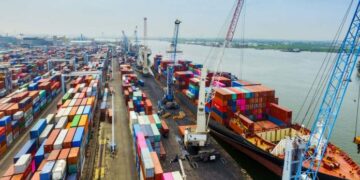West Africa Telecommunications Regulators Assembly (WATRA) has advocated greater adoption of e-Governance and concerted effort to expand the digital economy in Nigeria and other countries of West Africa.
The executive secretary of WATRA, Aliyu Yusuf Aboki stated that this will boost investment and create quality jobs for young people in Nigeria and West Africa. He stated that despite the comparatively low rate of literacy in West Africa, there is a very wide scope for digitizing government services.
He said he sees the enormous opportunity for e-governance as he travels across the 15 ECOWAS states. He explained that governments at all levels could increase their taxes dramatically by digitizing the identities of taxpayers and tax collection processes. He also emphasized that there is a great opportunity to expand access to education and healthcare through digital tools.
WATRA is a regional organisation that has the mandate to promote the adoption and harmonization of regulations that stimulate investment in telecommunications and increase affordable access for citizens.
The WATRA boss cited the example of India where over 1 billion citizens, including the poorest citizens, could easily receive or make payments using their telephones through a government-supported platform, the Unified Payments Interface (UPI).
Other government-backed digital schemes in the country enable municipal governments to manage healthcare online and citizens to store and readily access government documents such as tax returns on their phones.
Aliyu pointed out that the digitalization of government services has transformed the lives of the 273 million Indians who are classified as living in poverty. While noting progress in the adoption of ICT to deliver and manage government services in West Africa, the WATRA boss emphasized the need to scale up existing schemes in the sub-region.
Aliyu said it is essential to increase access to telecommunications services to fully derive the positive impact on the economy. He urged governments to reduce data cost for citizens by reducing taxes and tariffs on telecommunications. Governments should also provide free access to the internet in public places.
Besides affordability, governments should also design and initiate schemes to boost the skills required to use productivity-enhancing digital tools in collaboration with the private sector. Particular efforts should be made to adapt and impart skills to use digital tools on the poorest citizens as well to lower the costs of devices for them.
This will not only close the usage gap but will bring millions more citizens into the digital economy, thus boosting incomes, welfare, and economic growth. He urged the government to make a system-wide concerted effort to expand the digital economy.
Aboki said that Nigeria and West Africa have done very well generating economic growth and jobs through telecommunications policy and regulation but the possibilities are still enormous.
He noted that telecommunications drives economic growth in two ways, “it supplies a mass of soft and hard digital tools which a growing army of experts design and maintain and which businesses and entrepreneurs trade in. Then it provides platforms on which wide segments of the economy exchange goods and services and also tools to make every business more productive”.
Aliyu noted that software and other digital tools have completely transformed an industry like banking with a huge positive impact on the economy.
The WATRA boss shared data to buttress the growing impact of telecommunications on the economy, “In 2022, ICT contributed N21.15 trillion (16.51per cent), making ICT the second highest contributor to Nigeria’s GDP after the agricultural sector. Of the N21.15 trillion, the telecoms sector contributed 82.17 per cent.
There’s virtually no limit to how much employment the sector can generate. For example, there is a shortage of software engineers worldwide; a gap Nigerians can easily fill. We have very talented youth.“
He disclosed that there are an estimated 120,000 software engineers in Nigeria, adding that the number can go up with increased access to the Internet through deeper broadband penetration in the country.
Aboki said these actions the government should take are directly related to jobs in this sector. He said the sector could employ if service providers join hardware makers to set up firms to serve the Nigerian market.
“For example, if you look at all these phones that are coming in. Imagine all these are being assembled and manufactured here in Nigeria, with almost 200 million phones used in Nigeria including over 120 million smartphone users. The demography favours us and we’ve got the skills.”
He said getting the telecoms sector as a source of employment will involve the government reducing the tax burden on the sector, the reason I mentioned that I wouldn’t advise any increase in taxes and this allows players within the sector to increase investment.
“It’s all about creating an environment that would allow the private sector to invest, employ more staff and provide cheaper Internet services. So there is a virtuous cycle when you look at the telecoms services in Nigeria.”





